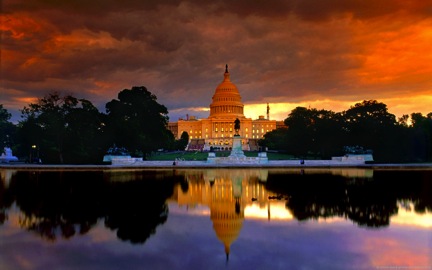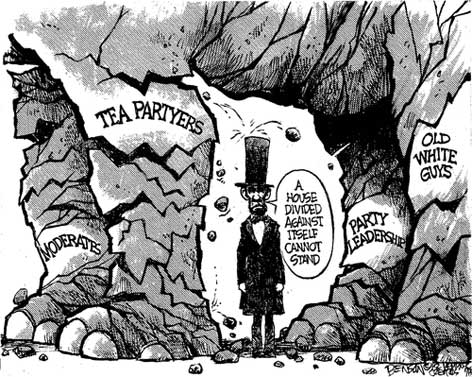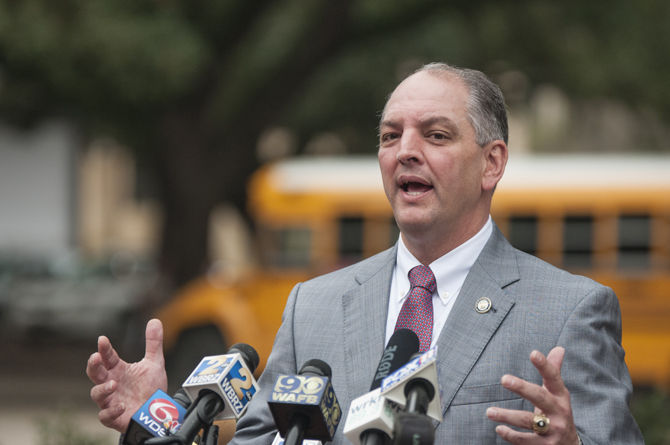By: Andrew Roberts
When the stock market opened on Jan. 2, 2013, all major indexes – the Dow Jones, S&P 500, and Nasdaq – rallied, likely signaling the market’s acceptance of the so-called “fiscal cliff” deal passed by Congress the night before. The market boost was a pat on Congress’ back, despite the fact that the fiscal cliff was a self-inflicted wound.
One part of the cliff, sequestration, was set to kick-in at the start of the New Year. The Budget Control Act of 2011 (BCA) required a committee to find $1.2 trillion in spending cuts. The committee ultimately failed, triggering the sequestration. The Act was designed to slash government spending in both national defense and entitlements to make up for this failure. Neither party wanted the sequestration to take effect, yet both parties voted to pass the BCA and its sequestration poison pill.
The Bush tax cuts, the second component of the cliff, were set to expire at the end of the year. Democrats, including President Obama during his reelection campaign, argued that wealthier Americans could afford higher tax rates, so they proposed extending the tax cuts for the middle class while allowing rates to go up on the rich. The Republican majority in the House countered, saying that the “job creators” could not afford a tax hike and initially refused to vote on the tax cut extension unless it included a tax cut for the wealthy as well. Democrats argued that Republicans were holding the middle class hostage, because they believed that one vote should be held on middle class tax cuts, unanimously popular, and another separate vote should be held on tax cuts for the rich, something that would not have passed because of Democratic opposition.
Friends and former colleagues Senate Minority Leader Mitch McConnell and Vice-President Joe Biden met to reach the deal – extension of tax cuts for couples making under $450,000 and a two-month delay of the sequestration. Although this was not the grand bargain that politicians, citizens, pundits, and economists were hoping for, it did effectively avoid the results of the fiscal cliff, preventing a double-dip recession, according to some economists. The general consensus is that Democrats won this round of negotiations. Tax rates went up on the wealthiest Americans, and although the sequester was not prevented, its delay is paid in part by increased revenues, something Republicans were against.
As the 113th Congress convenes, its members are able to put the most recent budget battle behind them and now must turn to the future financial cliffs they must avoid. As mentioned, one pressing matter is the sequestration, which is still set to take effect in early March. Republicans are opposed to gutting military spending, just as Democrats are opposed to slashing entitlement programs. Between now and early March, both parties will have to find a way to cut spending to prevent across-the-board cuts, something that will prove difficult and partisan.
In addition, outgoing Secretary of the Treasury Timothy Geithner announced that the United States hit the debt ceiling on Dec. 31, 2012. This arbitrary borrowing limit has been raised virtually every time the government has come close to hitting it since it was established in 1917, yet in Summer 2011 the United States went through the debt ceiling. The Treasury Department was able to move around money to prevent default, but the holdup in Congress ultimately caused a downgrade of the United States government’s AAA credit rating. Republicans refused to raise the borrowing limit unless spending cuts were put into place, which eventually happened. Congress passed The Budget Control Act of 2011, which raised the debt ceiling and created the bipartisan committee tasked with finding $1.2 trillion in spending cuts. As mentioned, this committee failed and sequestration took effect.
This previous battle over the debt ceiling is what in part created the fiscal cliff mess to start with. Now that the Treasury has announced the government is past its borrowing limit, the department is taking “certain extraordinary measures” to avoid default and keep the government funded for about another two months. Congress is once again tasked with raising the borrowing limit, something that is sure to cause fierce debate and once again tank confidence in Congress and in the economy.
The Obama Administration has stated that it refuses to negotiate with Republicans who are unwilling to raising the ceiling unless coupled with spending cuts. The administration argues that the House majority should raise the borrowing limit so that the economy can continue to grow without fear of default and then they can discuss a balanced approach to cut spending. Some, including previously Obama, have said that the president could unilaterally raise the ceiling, citing the Fourteenth Amendment, which says that the government’s debt “shall not be questioned.” Others have even proposed minting a $1 trillion coin to allow the government to spend more and postpone the debt ceiling debate, something both the Treasury Department and the Federal Reserve have shot down.
These cliffs – sequestration, income tax cuts, and debt ceiling – are just a few of the problems. Congress has to continually extend unemployment benefits, payroll tax cuts, and even farm bills that prevent milk prices from doubling (ever heard of the milk cliff?). The problem with these cliffs is that with each piece of their legislation, Congress includes sunset provisions, which sets an arbitrary expiration date for the policy. As those dates arrive, most of the time both parties agree that policy X needs to be extended, but one party uses the policy’s importance as leverage to achieve another goal. For example, with the current debt ceiling crisis, as well as the one in 2011, Republicans are demanding spending cuts in return for their vote on an increased borrowing limit.
These sunset provisions are causing overwhelming gridlock in Congress on policies that are often seen as having bipartisan support. It is understandable that sunset provisions often allow bills to become law that otherwise would not have support – how much success would the PATRIOT Act have had if not for its sunset provision? The 1994 Federal Assault Weapons Ban? The Sedition Act of 1798? Still, a bill, especially a critical one, should not pass just because there is the expectation that it will expire eventually. Instead, it should pass if it has the support necessary to stand on its own. If it requires a sunset provision to be passed, then it is likely too controversial to be a law in the first place. Instead, Congress should pass laws without sunset provisions and then if opinions change, they can repeal the law if necessary.
The Bush tax cuts included a sunset provision, but had they originally been permanently put in place, a whole portion of the fiscal cliff would not have existed. Then, if Democrats and Obama wanted to use political capital to raise taxes on the wealthy, they could addressed the matter its own. The tax cuts passed by Congress to avoid the fiscal cliff were fortunately extended permanently, meaning that there will not be another inevitable battle over tax cuts. If Congress decides to raise or lower taxes on a certain group in the future, it should handle the matter individually and without a sunset provision.
The sequestration and debt ceiling are not technically sunset provisions, but include arbitrary dates and limits that cause the same effect. Both parties agree that an extension is necessary, but one party ultimately uses the issue as a bargaining chip, or, as some claim. a hostage, to exploit the other party. The sequestration needs to be eliminated. If Congress legislated it, Congress can repeal it. It is a ticking-time bomb that is tanking consumer confidence and placing a dark cloud over the economy. Congress should repeal it and then deal with the debt as two separate and volatile issues. The same goes for the debt ceiling. The expectation with this limit is that eventually it will be raised and the government will continue to borrow and spend. By keeping the ceiling and continually raising it, Congress risks government default on its debt. If Congress wants to truly end its spending spree, it should remove the useless borrowing limit, end the risk of default, and address the spending issue on its own.
Congress needs to end its use of sunset provisions and in turn create bridges over these financial cliffs. By coupling political motives with sensitive policy expirations, Congress continues to threaten the economy and cast doubt over any sort of future bipartisanship and progress.

